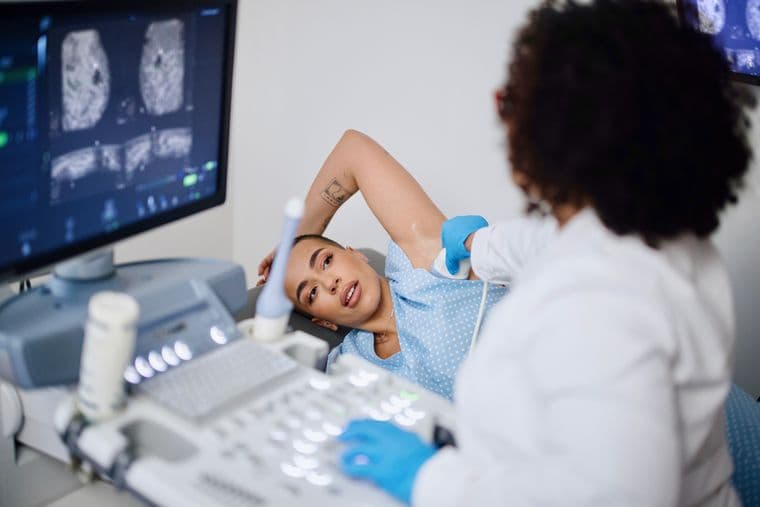New tests could spare people with early breast cancer from unnecessary chemotherapy
More people with early breast cancer could be spared chemotherapy and therefore avoid the side effects associated with the treatment after tumour profiling tests were recommended by NICE.

Our independent diagnostic advisory committee reviewed the evidence behind tumour profiling tests which are designed to provide information on the genetic makeup of breast cancer tumours.
This information can be used to guide the treatment of women who have been through the menopause, and men, with oestrogen receptor (ER) or progesterone receptor (PR)-positive, human epidermal growth factor receptor 2 (HER2)-negative early breast cancer with 1 to 3 positive lymph nodes.
The test results, which are returned in days, provide a risk profile of an individual’s breast cancer which can be combined with other factors, such as tumour size, to better predict the risk of disease recurrence in the future.
Three tumour profiling tests (EndoPredict, Prosigna, and Oncotype DX) can be used by the NHS.
Surgery is often the initial treatment for ER- or PR-positive, HER2-negative early and locally advanced breast cancer. After surgery, further treatment might be recommended which could include chemotherapy.
Currently decisions on chemotherapy after surgery for people with breast cancer that has spread to 1 to 3 lymph nodes are made based on several factors relating to the specific characteristics of the cancer, risk of recurrence and preference of the person with cancer. Additional information from tumour profiling tests may be helpful when making decisions about chemotherapy.
If tumour profiling test results indicate that a person is at low risk of cancer recurrence, they may feel more comfortable making the decision to forego chemotherapy. Fewer people having unnecessary chemotherapy would avoid harmful side effects.
Evidence presented to the committee suggests that tumour profiling tests can predict the risk of cancer coming back in a different part of the body. One of the tests (Oncotype DX) could also allow clinicians to identify people who are less likely to benefit from chemotherapy after surgery.
Choosing whether to have chemotherapy is a tough decision to make when you don’t have all the information available to you. A test that can help to predict the risk of the breast cancer spreading should be considered as a significant step forward for patients.
Our committee heard compelling patient testimony which outlined the significant emotional and psychological strain of having to make this decision. Having chemotherapy will be the right choice for some but for others they will not have to face the side effects which come with the treatment.
Our committee has recommended three tests which they believe are clinically and cost-effective, re-enforcing our commitment to get NHS patients the best innovative care based on evidence while at the same time ensuring value for money for the taxpayer.
Tumour profiling tests are already recommended by NICE for guiding chemotherapy decisions in people with oestrogen receptor ER-positive, HER2-negative, lymph-node negative early breast cancer. NICE is now recommending their use can be expanded to women who have been through the menopause or men with ER- or PR-positive, HER2-negative early breast cancer with 1 to 3 positive lymph nodes.
Breast cancer is the most common cancer in the UK. Around 1 in 7 women will be diagnosed with breast cancer during their lifetime according to Cancer Research UK. In 2020, data from NHS Digital showed there were 44,943 women and 348 men diagnosed with new cases of breast cancer in England, with most cases developing in women who are over 50 years old (Cancer Research UK 2020).